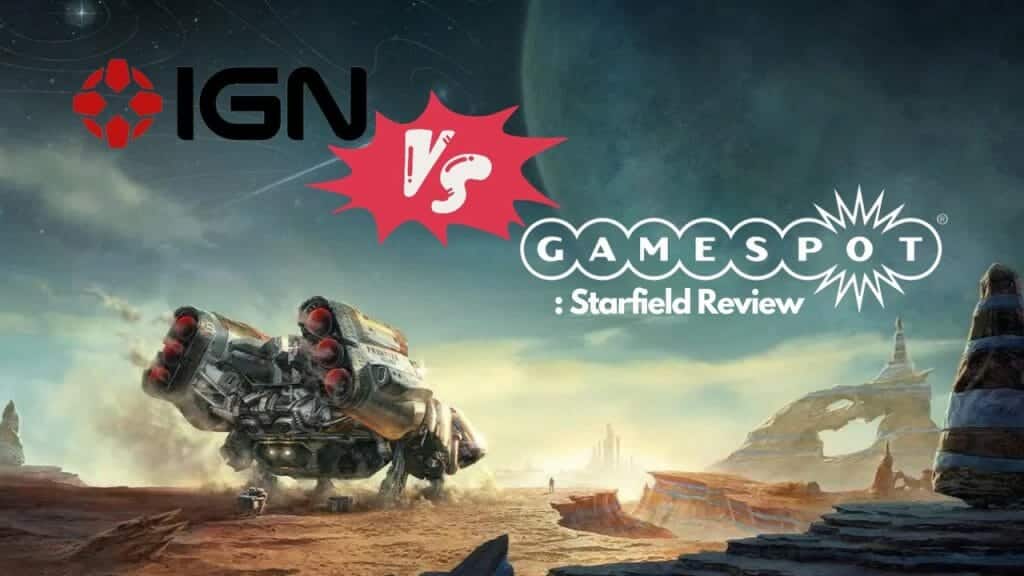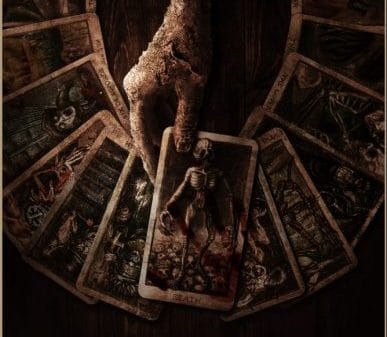Released on September 6, “Starfield” is the first intellectual property released by Bethesda in nearly 29 years. Best known for their multi-game franchises, Bethesda Game Studios has been focused on the continuation of their well-known franchises. Games such as “Fallout” and “The Elder Scrolls.”
While the game received early access, so did the reviews. Many highly reputable sources within the gaming industry have labeled the game with scores that seem to deter the fans. While the scores aren’t low, fans seem upset by the result. With IGN having scored the game a 7 out of 10, the same score was given by Gamespot. With their review titled, “to infinity, but not beyond.”

Now, don’t get me wrong, production build-up will never guarantee hype, but after the failure of “Cyberpunk 2077” in December of 2022, I thought that the fans would have learned by now. A game of this size will never be released in perfect playing condition. There will always be little bugs that will make the gameplay a little strange. Especially when the game is in ‘early access,’ like “Starfield.”
Sci-Fi gaming has been on the rise since 2020 but this single-player, action role-playing game was announced back in 2018 during the company’s E3 presentation. The game is exclusive to Xbox and PC, with many gaining access through Xbox Game Pass. But games on this service do get switched around. This means Starfield won’t be there forever, especially when release date glitches and bugs are fixed. And with the production being so heavily anticipated, fans are considering the reviews as a make-or-break.
But the real question is not about “Starfield,” but the way in which a review can impact a fan’s perception. Whether it’s truly worthy of influence.
Who to Trust:
GameSpot and IGN are two household names when it comes to the gaming and entertainment industries. Both began back in the mid-1990s. With their names out in the public eye for more than two decades, these companies hold the power of influence over fans in a way that some might deem damaging to the industry. One negative review from a source you trust could alter your perception completely.
When it comes to “Starfield,” their reviews don’t differ much from the typical day-one glitches we always see. They do, however, show their lack of excitement about the release.
Let’s look at the individual reviews.
“This is gonna be a bumpy ride.” IGNs Review of Starfield:
Fans are labeling the “Starfield” review as biased. With the influx of disagreement when the review hit Twitter.
Awarding the game a seven out of ten, the reviewer Dan Stapleton wrote that “Starfield has a lot of forces working against it, but eventually, the allure of its expansive roleplaying quests and respectable combat make its gravitational pull difficult to resist.”
While the review does recommend the game, it states, “There are a lot of forces working against it.” Stapleton blames the combination of “disjointed space travel,” lack of maps, and unorganized inventory management. Not to mention the bugs that all new games face.
However, the game’s unique selling point of building and piloting your very own spaceship amps the gameplay and saves it from falling flat. But what we need to remember is that with games this expansive, storylines may take longer than usual to become invested in. Especially when there is so much to do right off the bat.
But why has “Starfield” only achieved a score of seven? Which, according to IGN, only labels the game as “good?”
IGN – Scoring System:
A ‘good’ game is nothing to run from. Like IGN’s scoring system says, “Playing a good game is time well spent.” But how can a game that received such positivity before and after release only reach a score as shorthanded as ‘good’?
“Starfield” has fallen into the same category as FIFA 20, Yoshi’s Crafted World, Far Cry New Dawn, and World War Z. And while the review explains its reasoning, fans have taken to the comments section of the Twitter post to voice their opinions.
Twitter user @OneDesignLater wrote, “I was told this would be the greatest game of the generation! What happened?” And another user, @Redfoxm18, told IGN, “Hey IGN(,) you are letting your bias show…“
Another user expressed his opinion on reviews as a whole:
IGN’s reviews are read by thousands. Whether they agree with them or not. The same for GameSpot, but what does their review say differently?
“To Infinity, But Not Beyond.” The GameSpot Review:
With the same score of seven out of ten, GameSpot is much clearer with its conclusion.
Micheal Higman reveals in the review that he believes the story has a lot to it but doesn’t go very deep; making a fun but shallow gameplay experience. He confirms that the scale is impressive with the sheer number of planets to explore and the gameplay mechanics to learn, but the plot seems too scripted.
He writes, “Once you start to see how all these big ideas are interconnected from a narrative perspective and technical standpoint, the illusion of a grand cosmic voyage shatters.” The review presents a clear and detailed exploration of the gameplay with a balance of negatives and positives, making the overall product a success.
Despite this, Twitter users seemed to jump to defend the game against the review. As many users jump to the defense of “Starfield.” @DylanConn17 argues that both GameSpot and IGN “always have terrible takes”
Another user by the name of @Alvarix69 wrote, “Nice review PS fanboy.“
As shown by the GameSpot review, “Starfield” was always going to be criticized and compared to the likes of its sister projects. Skyrim and Oblivion are two fantastic games that share more than one or two similarities. Which we should expect. Both of them are created by Bethesda.
The GameSpot scoring system also comes with simple and easy-to-find reasoning. A method behind the madness, if you will.
GameSpot – Scoring System
There will always be two sides to a story. The good and the bad. GameSpot’s reviewing system ensures that fans see both sides with what is essentially a bullet-point list of pros and cons.
The review even includes an “about GameSpot Reviews” section where it mentions, “In reality, a lot of games are not final at launch or even two weeks after launch.”
What Effect Do These Reviews Actually Create?
Honestly? Nothing of importance.
You could read a horrific review that labels everything wrong with a game, neglecting any redeeming qualities, and I guarantee that someone will still happily buy it. Game studios like Bethesda create such strong bonds with their fanbase through expectations and promises to be just what they want. Even when they don’t follow through. But fans will continue to show their support and buy the game just to see what it’s like.
And don’t get me wrong, these fanbases can turn the moment they realize that something isn’t quite right.
These reviews aren’t to persuade a person to buy a product. It is merely a source of serotonin to get them excited to experience the exploration of a new world and what to expect.
Some players read reviews for validation. After buying the game for themselves, they will look at the reviews to see if their thoughts about the game align with other people. Not to deter them from playing but to read other people’s experiences.
The only thing that can change a buyer’s mind is witnessing a flatlining game firsthand, and from the looks of it, “Starfield” is more than thriving within the Bethesda Fanbase and further.














